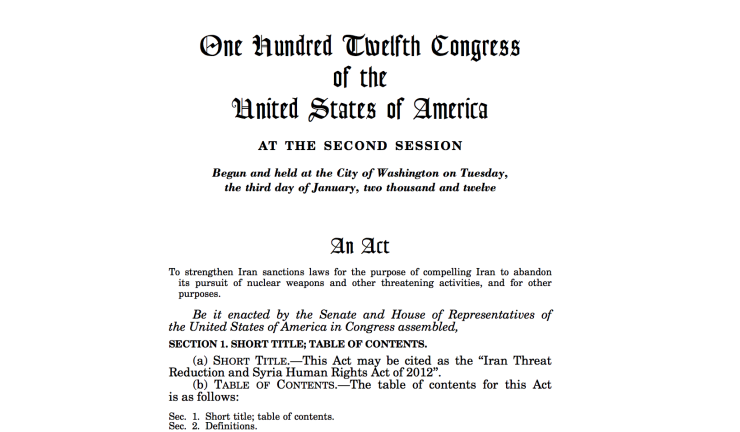Iran’s Phantom PATRIOT Act 311 Designation
On July 23, the Financial Crimes Enforcement Network (“FinCEN”) issued a Final Rule pursuant to § 311 of the USA PATRIOT Act imposing the Fifth Special Measure on FMBE Bank Ltd. (“FMBE”). FMBE was identified by FinCEN as a financial institution of primary money laundering concern on July 15, 2014 for facilitating pretty much every type of nefarious activity including money laundering, terrorist financing, sanctions evasion, corruption. The Final Rule imposes the Fifth Special Measure pursuant to 31 U.S.C. §5318A(b)(5), which prohibits U.S. correspondents from processing transactions on behalf of FBME and requires special due diligence to ensure this.
Setting aside the specifics of this particular case, the FMBE Final Rule highlights an often-overlooked peculiarity of the Iran sanctions regime. From a strictly legal perspective, the designation of Iran as a jurisdiction of primary money laundering concern is meaningless.
If one goes to FinCEN’s webpage dedicated to Section 311, you’ll find a help list of every 311 action implemented since the passage of the Patriot Act. The listings are broken up into 4 columns highlighting the chronology of a 311 designation. First FinCEN issues a finding that a jurisdiction or institution is of primary money laundering concern. Then, the agency issues a Notice of Proposed Rulemaking outlining the various restrictions it contemplates imposing on the target. Next, FinCEN issues a Final Rule, giving the proposed restrictions the force of law. Last, if applicable, the date on which a 311 action has been rescinded is listed.
Looking at the Iran listing, it’s clear something is missing: a Final Rule. While it may be hard to believe, FinCEN has never imposed any actual restrictions stemming from Iran’s 311 designation.
From a practical perspective, it’s easy to understand why. Dealings by U.S. financial institutions involving Iran are already subject to so many different restrictions that any of the special measures would simply overlap with existing prohibitions. It’s unlikely that actually issuing a Final Rule would have substantially changed the way U.S. financial institutions or their foreign correspondents operate.
But with sanctions relief envisioned by the JCPOA around the corner, some are invoking the Iran’s 311 designation as a significant barrier for foreign companies considering entering the Iranian market. This is somewhat true in a broad sense, much as the Financial Action Task Force’s inclusion of Iran on its blacklist will force banks to be cautious when dealing with Iran. But the fact remains that as it currently stands, FinCEN’s Finding doesn’t compel any special action on the part of financial institutions both foreign and domestic.



